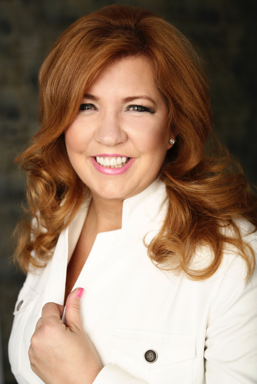Transcripts

Erik: Joining me now is Joseph Wang, proprietor of fedguy.com. Joseph, it's great to get you on the show. This was an FOMC week. Why don't we start with what happened? I don't think the 25 basis point hike really surprised anybody but give us the bigger picture. This is one of the most anticipated rate hikes in all of history. The beginning of a cycle that a lot of people have their eyes on. What should we take away from this week's FOMC and what other perspective do you have on what's going on?
Joseph: Hey Erik! First of all, I want to thank you very much for inviting me. I've actually listened to MacroVoices every week for the past few years. So it's a great honor to be here. So today's meeting was as you mentioned, highly anticipated. Again, we're at liftoff again. And what I see is that we're kind of at an inflection point for a global monetary policy. For the Fed, for example, we're hiking today, but not just the Fed. If you look across the pond at the ECB, at the BoE in many developing market central banks, everyone is getting more hawkish, less accommodative, everyone except the BoJ but they got to do their own thing. So today, if you look at the market reaction, you might think that it was dovish. You see equities rallied, you see the two year yield, the one that's most sensitive to Fed policy, the rates went up a few basis points, not much and the 10-year went up a little bit as well.
But if you look at the SCP dotplot, I think what you see is, I think, a much more hawkish response. You see the Fed revising up their expected Fed funds rate by 100 basis points for the next three years. You see inflation expectations rising and expected real growth markdown so basically stagflationary. And the other thing that happened during the FOMC is that Powell seems to be ready to go forward with QT at the next meeting. So when you put those together, in my view, it seems like a rather hawkish meeting. Although to be clear, inflation is very high and the Fed is far far behind the curve. The way that I see this biggest thing that could happen in the coming weeks is that we have a very aggressive quantitative tightening. And that's actually be hinted at by Powell at his house testimony a couple of weeks ago. And that I think, could be a big change for the markets much more so than just hiking the short rate by a couple 100 basis points would imply.

Erik: Joining me now is Lakshman Achuthan, founder of the Economic Cycle Research Institute (ECRI). Lak prepared a short chart deck to accompany today's interview. Registered users will find the download link in your research roundup email. If you don't have a research roundup email, it means you're not registered yet. Just go to our homepage, macrovoices.com. Click the red button that says looking for the downloads.
Lak, it's great to get you back on the show. Last time we had you on was August of 2021. And at the end of that interview, I said hey you're a cycles driven guy. So why don't you reach out to us when your cycles tell you, you got something new to talk about. You reached out a couple of weeks ago before the whole Ukraine situation erupted on us. And you said you had something to talk about pertaining to an upcoming policy mistake. What's on your mind?
Lakshman: Right! Hey, it's great to be back and thanks for the intro. Basically pre-Ukraine crisis, we were just staring down the barrel of a couple of policy mistake choices. It wasn't whether or not there would be one. it was just which one do you want to choose. And to kick it off, I'd say the first one that we were alluding to probably the last time we were able to talk together is that they could be tightening. The Fed could be tightening into a slowdown and therefore be risking a recession and or market crash. And I guess alternatively, if you took the other kind of door. They could kind of back off and get a bit more dovish. And then under those circumstances, they'd be risking runaway inflation and letting that get really embedded.
And so they had a very very narrow path to try and get to the proverbial soft landing. And not even I think realizing that we were cycling down in terms of growth. And since then, since I reached out, that path has become extremely narrow I would say at this point. And I think it's not too long ago, just a few days ago. So you know, after the the Ukraine crisis kind of kicked up, you know, Powell has said that he's still on track for hiking as needed to quell inflation. So here we are! I think we're staring Ukraine aside, we're staring at some volatility here in front of us from a couple of different angles from a cyclical vantage point.

Erik: Joining me now is Dr. Pippa Malmgren. former presidential adviser and best selling author. Pippa it's great to have you back on the show. Needless to say, this is a week where we need to talk. Thank you for having me as always. Now, listeners, I know everybody is expecting us to talk about the Russia-Ukraine situation. And we're absolutely going to do that. But we're going to start with a bigger picture to frame some context. When we set this interview up. It was long before Russia-Ukraine had even blown up. And what brought this about was two separate MacroVoices guests. People whose names you know well and I'm not talking about random bloggers, but guys who run funds with hundreds of millions to low billions of dollars in them have told me privately off the air because they didn't want to go on record saying they believe that World War III actually started a year ago.
And when I heard that I thought, holy cow, I can't believe I'm hearing what sounds like conspiracy theory from really prominent people in finance. I thought I know, I'll run this crazy talk past my friend Pippa who used to work in the White House and knows how to debunk conspiracy theories. When I said that to Pippa her reaction was, did you read my article on Substack, titled World War III has already begun. Pippa, holy cow! First of all, what is a fair haired patriotic American gal who used to work in the White House doing on Substack, the blogging platform, which is the anti-censorship platform for people like Edward Snowden and Glenn Greenwald, and people who have been censored from other internet platforms. What are you doing on Substack?
Pippa: Well, I haven't been censored on other internet platforms. It's more that it's a great setup that allows a person to really write at length and provide deep dive analysis of situations. And yeah, there's a breadth of opinion on there. But you know, I grew up in Washington D.C. in the heart of politics and my experience was that I know this is maybe horrifying to some people but you need to talk to all sides. And you need to consider all angles right? That nobody has a monopoly on the truth. You have to really understand arguments that don't jive with your own. So I'm very big on listening to people who are way outside my own comfort zone in my attempt to understand what's happening in the world better.

Erik: Joining me now is Charlie McElligott who heads up the cross-asset Macro Strategy Group at Nomura. Charlie and his team assembled a short slide deck to accompany today's interview. Listeners will find the download link in your research roundup email. If you don't have a research roundup email, just go to our homepage macrovoices.com, look for the red button that says looking for the downloads. We'll be focusing most of today's interview on the first two charts, but I recommend perusing the remainder of the short deck at your convenience.
Charlie, it's great to have you back on the show. It's been too long, I want to start by just going way back out high level, big picture here. We've got this fed tightening cycle. A lot of people are saying hey, the Fed has no way to get out of this at this point. The markets gonna crash. It's just got to be you know 20, 30, 40% down before the Fed put will kick in and the Fed will change its stance. Is that the right way to think about this and what does history teach us about what happens in these tightening cycles?
Charlie: Well, it's certainly good to be back and speak with you guys. It has been too long, fully agreed. Look, inflation has been this macro regime change catalyst. Inflation, as I've said, I think prior meetings with you folks years ago, is the driver of cross-asset volatility. Simply on account of what it does with regards to a forced capitulation from global central bank's away from the persistent easy money policy, large scale asset purchases dynamic of the past, you know, decade plus since the financial crisis. And what that led to and why the last year, you know, last half year to a year has been so tumultuous is that almost all legacy cross-asset leadership and positioning and performance has been tied to that dynamic where it was all about Goldilocks economic environment, not too hot, not too cold with growth and inflation. And that inflation skepticism or cynicism then allowed for outperformance of duration sensitive assets and stuff that's sensitive to interest rates.
And investors parked in long duration assets. They parked in stuff from the equity side that could grow profits in earnings without a hot cycle. And in you know, the treasuries or rates side that meant long treasuries, bull flattening and curves, negative real yields. So, which is a very highly speculative environment which meant persistently low volatility and long gamma, short skew, all of these dynamics really crowded us into trades that were proxies of the same thing. Long secular growth, expensive, high multiple equities are equivalent to long, you know 10 year or 30 year Treasury type of dynamic and ultimately created to the fact that US is this secular growth engine versus rest of the world being very cyclical, very value. We created this US exceptionalism trade, and that shift over the past, you know two years frankly right that from the COVID double whammy of the monetary policy and the fiscal policy response, and then the exit from that period, really supercharged and unanchored inflation and that's where we are right now.

Erik: Joining me now is Bianco Research founder, Jim Bianco. Jim, it is great to get you back on the program. It's been so long, I want to start with the subject that I know is near and dear to your heart and mind, which is okay, this whole big picture of inflation and the credit market and what's going on with fixed income. And here we are, you know 2% on the 10 year yield. Some people say this is the beginning of the end. The bond markets about to crash. Alex Gurevich told us last week, no, no, no it's actually time to buy bonds not to sell bonds. And there's something kind of fascinating to me, which is I've seen this narrative floating around where people are saying, hey, wait a minute, if you look at what's going on with the stock market's reaction to inflation, you kind of think that inflation is not transitory and about to run away. But if you look at the credit markets, reaction to inflation, then it looks like the credit market is not really persuaded that this is going to be non transitory, secular inflation. Is that right? And a lot of people think the credit markets smarter than the stock market, what's going on here?
Jim: Yeah, so a couple of things. Let me start at the beginning of your question about inflation. So obviously, everybody knows that we've got a seven and a half percent inflation rate, and it's a 40 year high. We also know from the inflation statistics, given where we saw the numbers in March, April, May, June of last year, .6, .9., .6. That unless we continue to put up point .6-.9, we'll probably have a peak in the year over year numbers. Now, that's not a sign that inflation is over. Because I think the story in the second half of the year, is going to be that how fast does inflation descend? And count me in the camp that is not very fast, and that we're going to still wind up with a very elevated number.
Why do we have inflation? I might give you a little different answer as to why we're going to have inflation. Every generation has a financial event. This generations financial event was that we sent everybody home for a year. Last generations was the great financial crisis, the one before that was the tech bust of 2000. Because we send everybody home for a year, I think what we're not appreciating is, a lot of secular changes have occurred in work patterns, purchase patterns, and in the general economy. Now, do not mistake that for saying that it's dystopian, it doesn't have to be dystopian, and I don't think it is necessarily bad. And what I mean by that is, we went home for a year, we showed work from home as a viable alternative, a remote work is a viable alternative. And for a lot of people, it's preferred. And we're having a very difficult time getting people to go back to the office.
In fact, their stories, even this week, HSBC being the latest, that the raising banker pay a lot, because one of the things that New York City banks want is they want you in the office five or six days a week, 10 hours a day. So they have to bribe you to do that. Because a lot of people don't want to do that anymore. And because we working at home, our consumption patterns have changed a lot. We need more stuff, as opposed to services, cuz we're now remote. And that is leading to a general confusion among shippers and manufacturers. What am I supposed to make? What am I supposed to ship? I have this schedule of what it used to be in 2019. But that doesn't seem to work anymore. Obviously, the 2020-21 schedules were lockdown schedules of what people wanted. I don't assume that's going to work. I don't know what they want. So I order everything. And that's why we have this perpetual supply chain problem as well too.
And the reason I bring that up is because it seems like a lot of economists like to say as far as the inflation problem is a supply chain problem. Yes, that's true. So therefore, do nothing, just stand there and wait, and the supply chain will resolve itself. No, it won't. It won't until we have an introspection of what is the post-pandemic economy look like? And I think the answer is it doesn't look like 2019. And so the sooner we understand that, the better we can go about starting to understand what this new economy is. In the meantime, inflation is going to stay elevated. There's a friction in the economy, a mismatch. There's a friction with supply. And we've also overstimulated the economy with too much stimulus checks and too much fiscal stimulus as well, too. So that's why I think that the inflation rate is going to stay up.
MACRO VOICES is presented for informational and entertainment purposes only. The information presented in MACRO VOICES should NOT be construed as investment advice. Always consult a licensed investment professional before making important investment decisions. The opinions expressed on MACRO VOICES are those of the participants. MACRO VOICES, its producers, and hosts Erik Townsend and Patrick Ceresna shall NOT be liable for losses resulting from investment decisions based on information or viewpoints presented on MACRO VOICES.
